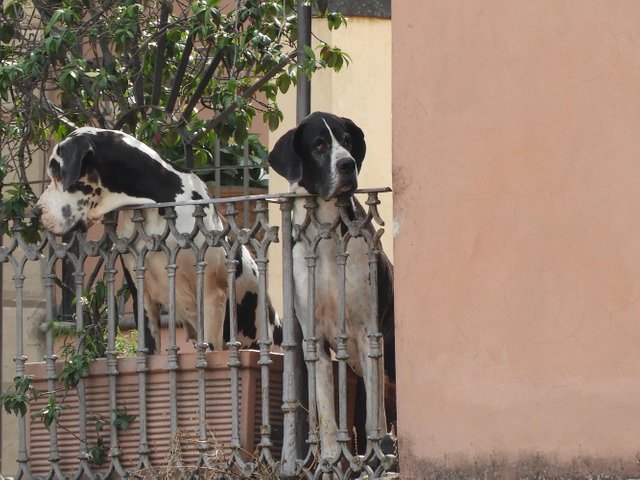The Oplepo: a group of creative writer inspired by the Oulipo
Maybe you've never heard about Oplepo, but don't wrry, I'm here to explain what the Oplepo is!
At first, you have to know that the word "Oplepo" is the acronym of the italian words OPificio di LEtteratura POtenziale (literally means Esponential Literature Mill).The Oplepo is a group of people inspired by the french Oulipo, a group of writers who work using constrained writing techniques. The french Oulipo was founded about 50 years ago by the famous writer Queneau and by Le Lionnais, but there were many famous and interesting writers in that group, for example Georges Perec (one of the favorite writers of my hubby) and the italian writer Italo Calvino (that I love so much!).
The French Oulipo formalized the "potential" and the innovation of some forms of tecniques in the contemporary literature and, as Calvino said, writing a text following specific rules anables the multiplicity of the texts that you could write following the same rules.
It's a very creative way to think/create/write text, but it's not simple, believe me!
Following the impressive work of the Oulipo, in the 1990 a similar group called Oplepo was born also in Italy!

(These giant dogs are not interested in the Oplepo, but they seems to be curious about it ^_^)
I found an interesting text in English that explain very well what's Oulipo and Oplepo are, you can read it here.
You can also read more about Oplepo on their site, but it's just in Italian langiage, sorry: http://www.oplepo.it/
I started to know the works of that group just thanks to my hubby and so I'm really intrigued by their use of our language using tecniques as lipograms, palindromes, the non-sense sentences and others. Every time it's really a pleasure to hear or to read how they "play" with the language to have fun producing excellent literature. Every time I go to an Oplepo meeting or I talk with a writer of the Oplepo, it's really a breath and I want to explain why:
I love so much to read. I read everything, everywhere and yes, I love to learn something new everyday. The word "culture", for me, is not just about how much books you read or what kind of study you did or if you have a sheet of paper that say you're graduate. The "culture" is more than this. Culture is made by your experiences, people you met in your life, what you have heard or felt, the words you said, the stories that you can tell and many many other things (sure, also your studies,but not just at school ^_^). I don't like people who think to know everything in the world and use a lot of complex words just to say to other people "Yes, I'm better than you because I know a lot of complex words". Usually their complex words hide their poor content. Everyone of us can use complex words, it's not so difficult (ok, I can do it just in my mother language, but believe me, in Italian we have many many complex words that we can use :P), but just people who really have a "culture" know that the content is more important than some random words in the wind and they use words to have fun creating literature. They don't feel the needed to give proof of what they know, because they are aware that everyone of have always something to learn, the knowledge can't have limits. I love people like these.

I know, the beautiful giant dogs are not connected with the text of this content, but I couldn't resist to share with you this couple who live in a house close to me.
It's time to wish you a good night!
See ya soon
Silvia

I love the people you love too!
Keep copies of Queneau on my special shelf (one in French, bought by mistake, then again, there are not as many mistakes in life as we think, and one in English - and this actually makes fascinating comparitive readingfor a linguist-translator of all of life into any words).
We also have copies of Queneau in French and, sure, in Italian too. The same for Perec and others, me and my hubby studied French (that is similar to Italian) and yes, the comparitive reading is really fascinating! I'm really intrigued by their works, they experimented the language and the use of the word like an artist experiment different media or shades of colors. I think it's also a funny way to bring people close to the literature. ^_^
love those dogs. Great post.
thanks ^_^
demasiado bellos los perros, y muy buen trabajo. soy venezolano ,espero visitarnos siempre y contar con su apoyo y aporte a mis pots. saludos y dios lacuide
Oh, I love Oulipo! I like to compare it to visual art, using language as your material, like a painter uses paint. It inspired two big anthologies in Dutch, and some avant-garde magazines, but not really a movement.
If anyone wants to read an English equivalent, try the poem Eunoia by Canadian poet Christian Bök (that's him reading the chapter I, using the letter I as the only vowel). It's impressive. Bök managed to create a meaningful and passionate text within the constraint of using only one vowel per chapter.